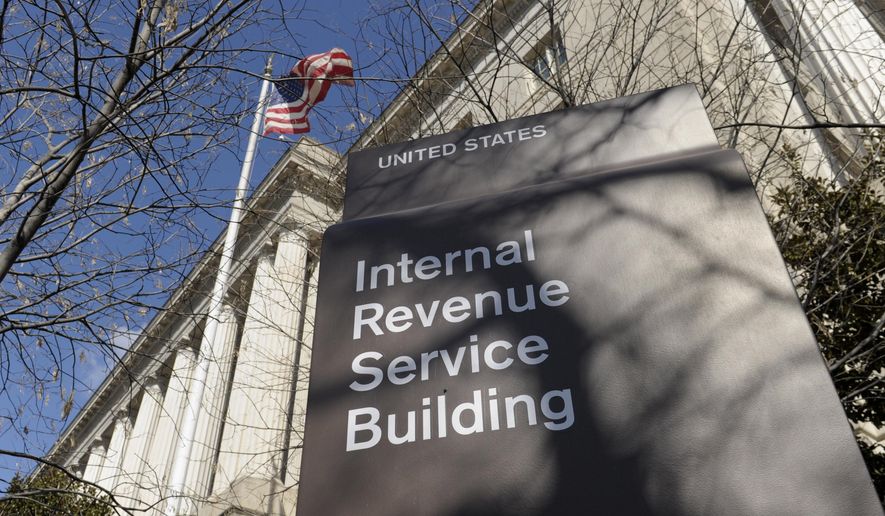The IRS admitted Thursday that millions of Americans would likely see a delay in receiving their tax refunds this year because of a worker shortage and document backlogs at the agency.
IRS Commissioner Charles Rettig told the Senate Finance Committee that his organization had implemented mandatory overtime for its employees to speed up the processing of returns, but lingering problems exacerbated by the COVID-19 pandemic are still likely to delay tax refunds.
“The IRS is serving more people and entities in a global environment than ever before while handling new and bigger responsibilities,” Mr. Rettig said. “At the same time, we have experienced delays in updating our IT systems, which means the IRS and taxpayers must continue to use certain paper-based processes.”
He blamed the ongoing fallout from the COVID-19 pandemic and the huge number of taxpayers who still file handwritten returns for slowing down IRS work.
Republicans said the issues afflicting the agency are not the result of the coronavirus pandemic, but rather mismanagement and poor planning.
“This is not simply a problem of taxpayers choosing to deluge the IRS with paper-filed returns,” said Sen. Mike Crapo of Idaho, the top Republican on the committee. “In many cases, IRS forms and schedules simply cannot be electronically filed, including where a taxpayer could e-file and attempts to do so but is rejected by the IRS’ confusing digital signature process.”
Sen. Chuck Grassley, Iowa Republican, noted that the IRS had been given $4.5 billion since 1999 to modernize and build out its information technology infrastructure. To date, the agency is still using systems created nearly 60 years ago.
“Given this history, how can Congress have any confidence additional funds will result in the IRS successfully replacing this 1960-era system,” Mr. Grassley said.
Democrats defended the IRS, saying the agency is not to blame for circumstances wracking its ability to deliver tax refunds promptly. They blamed GOP budgets for the past decade for hamstringing the IRS’ performance.
“If you’re frustrated by poor customer service from the IRS, you have years and years of Republican cuts that have contributed mightily to the ability of the agency to meet your expectations,” said Senate Finance Committee Chairman Ron Wyden, Oregon Democrat.
IRS officials say that the majority of its problems result from taxpayers’ continued reliance on filing returns in paper format, rather than virtually. Paper returns have to be reviewed by staff and hand scanned into the agency’s system for refunds to be processed. They blame the handwritten return for causing a massive backlog.
As of March, the IRS had still not processed more than 12 million tax returns from the previous year. The backlog will impact the ability of the IRS to process this year’s tax returns, especially if filed in a paper format.
Mr. Rettig said the difficulty in processing paper returns also bled into the IRS’ ability to properly answer phone calls. At the height of the COVID-19 pandemic, the agency was receiving upward of 1,500 calls per second from taxpayers. Most of the calls and voicemail messages were never answered, he said.
“We need to crush our return backlog because the folks who answer the phones also process paper, so when we get through the paper, we can get all those folks full time back on the phones and handling it,” Mr. Rettig said.
To help, Mr. Biden is proposing to spend upward of $389 million in this year’s budget to boost the IRS’ capacity to answer telephones. By Mr. Rettig’s own admission, though, the goal of the added spending would be to ensure the IRS can answer 8 out of every 10 calls.
IRS officials say that the COVID-19 pandemic is to blame for the backlog and poor performance because it prevented the agency from properly staffing up. Even now, the IRS has only been able to hire 2,000 out of the 10,000 additional personnel it has been approved to bring on board.
“The pandemic caused significant hiring challenges, including low applicant pools in some locations, delays in fingerprinting due to closed facilities, and delays in processing applicants virtually,” Mr. Rettig said.
• Haris Alic can be reached at halic@washingtontimes.com.




Please read our comment policy before commenting.